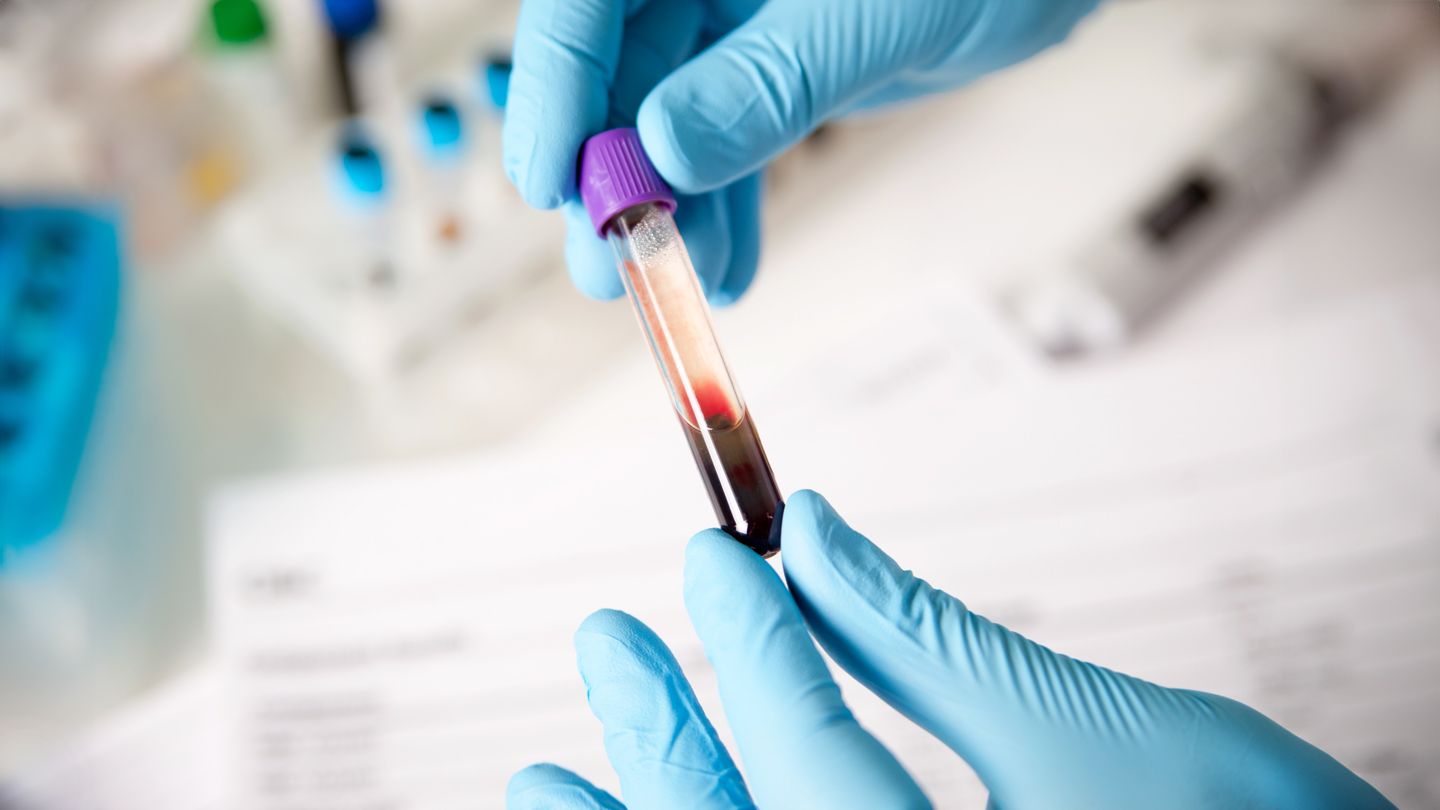After evaluating symptoms that may suggest Duchenne, physicians will typically turn to lab tests that can confirm the diagnosis:
Creatine Kinase (or CK Level) Blood Test Doctors take a blood sample to measure levels of creatine kinase, an enzyme that leaks out of damaged muscle. Elevated CK levels usually means that muscle is being disintegrated by some abnormal process, such as muscular dystrophy.
Genetic Testing A lab analysis of the DNA (the molecule that contains genetic information) in a blood or saliva sample can reveal whether there are genetic mutations that prevent muscles from producing the protein dystrophin. If the test comes back with the terms “Positive result,” “Mutation detected,” “Pathogenic variant detected,” or similar, it is confirmation of a DMD gene mutation.
Muscle Biopsy By taking a minute tissue sample from the thigh or calf, doctors can look at the cells under a microscope and get a clearer picture of what is happening inside the muscle. Specialists look for endomysial connective tissue proliferation — a type of abnormal tissue growth in patients with DMD that is apparent long before any muscle degeneration can be observed.
They also will note any general degeneration, abnormal cell death of muscle cells (necrosis), regeneration of myofibers (cells that make up skeletal muscle and rise with muscle injury), and replacement of muscle with adipose tissue and fat.
A biopsy involves injecting a numbing medicine, such as lidocaine, into the skin and muscle at the biopsy site, to reduce pain. The biopsy site may be tender for two to three days after the procedure.
Electrocardiogram (EKG) and Echocardiogram (Echo) DMD almost always affects the heart, and an EKG to check heartbeat and electrical signals can reveal characteristic symptoms of the disease. Abnormal rhythms suggest heart muscle damage.
While an EKG provides details about the heart’s electrical activity, a doctor may want to look more closely at the structure of the heart using an echocardiogram, which uses high-frequency sound waves (ultrasound) to make pictures of the organ. Studies have shown improvement in the early diagnosis of DMD-related cardiomyopathy with advanced echocardiogram techniques.
With DMD, cardiac function worsens, and heart failure can develop. Based on EKG and echocardiogram readings, doctors may prescribe medications that help heart function.
Read the full article here




